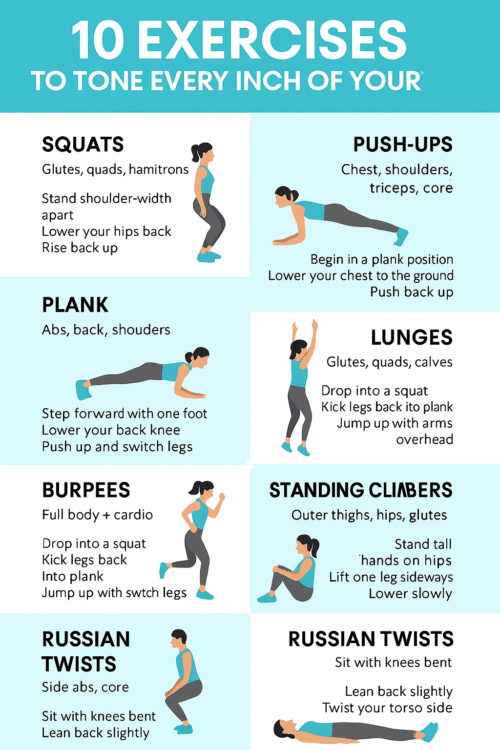Morning Yoga for Good Health: A Comprehensive 1 Guide
Yoga is an ancient practice that has been cherished for centuries due to its ability to foster physical, mental, and spiritual health. Among the numerous ways yoga can be incorporated into daily life, morning yoga stands out as one of the most effective. By practising yoga in the morning, you set a positive tone for the day, boost your energy levels, and promote overall well-being. This comprehensive guide delves into the benefits of morning yoga, how to create an effective routine, and the various poses that are best suited for early practice. Whether you are a beginner or a seasoned yogi, this article will provide actionable insights to enhance your practice.
Table of Contents:
1. Introduction to Morning Yoga
* What is Morning Yoga?
* Historical and Cultural Significance
2. Benefits of Morning Yoga for Good Health
*Physical Health Benefits
*Mental Health Benefits
*Spiritual and Emotional Benefits
3. How to Create a Morning Yoga Routine
*Assessing Your Needs and Goals
*Establishing a Time and Environment
*Consistency is Key
4. Best Morning Yoga Poses for Beginners and Experts
*Beginner-Friendly Morning Yoga Poses
*Advanced Morning Yoga Poses
5. Tips for a Successful Morning Yoga Practice
*Incorporating Meditation and Pranayama
*Pre-Yoga Hydration and Nutrition
6. Common Mistakes to Avoid in Morning Yoga
7. The Role of Morning Yoga in Holistic Health
*Balancing Body, Mind, and Spirit
8.FAQs About Morning Yoga
1. Introduction to Morning Yoga
What is Morning Yoga?
Morning yoga refers to practicing yoga asanas (poses) and breathing exercises during the early hours of the day. This practice typically occurs after waking up and before beginning the day’s activities. Morning yoga is not just about physical stretches; it also incorporates mindfulness, meditation, and deep breathing exercises, making it a holistic approach to wellness.
Historical and Cultural Significance
Yoga has deep roots in Indian culture and has been practiced for thousands of years. It is said that early morning, just before sunrise, is the ideal time for yoga as the air is fresh, the environment is calm, and the mind is free from distractions. In Hindu and yogic philosophy, this period is known as the “Brahma Muhurta,” a time considered highly conducive for spiritual and physical well-being.
2. Benefits of Morning Yoga for Good Health
Physical Health Benefits
1. Improves Flexibility and Mobility
Morning yoga helps lengthen your muscles, improve joint mobility, and reduce stiffness that accumulates during sleep. Regular practice enhances overall flexibility, making your body feel more agile throughout the day.
2. Boosts Circulation and Energizes the Body
Yoga encourages better blood flow, which increases oxygen delivery to cells and helps to invigorate your system. Poses that involve stretching, twisting, and inverting the body also stimulate the circulatory system, leaving you feeling energized.
3. Enhances Strength and Endurance
Many yoga poses build strength by requiring you to hold your own body weight. Over time, this helps in toning muscles, improving core stability, and boosting endurance.
4. Promotes Better Posture
Morning yoga encourages body awareness, helping you to correct posture-related issues. Poses like Mountain Pose (Tadasana) and Downward Dog (Adho Mukha Svanasana) realign the spine, reducing the risk of back pain and improving your overall posture.
5. Aids in Weight Management
Although yoga is not as intense as some cardiovascular exercises, its ability to enhance metabolism, reduce stress (a common cause of weight gain), and improve digestion can help in managing or losing weight.
Mental Health Benefits
1. Reduces Stress and Anxiety
Yoga incorporates deep breathing and mindfulness, both of which have been shown to lower cortisol levels, the hormone responsible for stress. Starting your day with yoga can leave you feeling calm, centered, and prepared to tackle the challenges ahead.
2. Enhances Focus and Mental Clarity
Morning yoga clears mental fog by stimulating blood flow to the brain. Meditation and breathwork included in yoga help quiet the mind, boost concentration, and increase mental clarity, which is especially helpful for a productive day.
3. Promotes Emotional Stability
Yoga’s focus on mindfulness helps manage emotions and maintain emotional equilibrium. Morning yoga, with its calming and centering effects, supports emotional balance, making you less reactive to stress throughout the day.
Spiritual and Emotional Benefits
1. Cultivates Mindfulness and Presence
Yoga encourages you to stay in the present moment. This state of mindfulness nurtures a deep sense of gratitude, peace, and fulfillment.
2. Connects You with Your Inner Self
Morning yoga is a practice of self-awareness and introspection. Starting your day with yoga fosters a deeper connection with your thoughts, emotions, and spiritual well-being.
3. Encourages Compassion and Self-Acceptance
The mindfulness practiced in yoga helps foster a more compassionate outlook toward yourself and others. As you tune into your body and breath, you begin to appreciate yourself more deeply, promoting self-love and acceptance.
3. How to Create a Morning Yoga Routine
Assessing Your Needs and Goals
Before diving into morning yoga, assess what you wish to achieve. Are you looking to improve flexibility, relieve stress, or cultivate spiritual growth? Your goals will influence the type of poses, duration, and focus of your practice.
Establishing a Time and Environment
Morning yoga is most effective when practiced in a quiet, serene space. Set aside a dedicated space in your home where you can stretch, breathe, and meditate without distractions. Make it a habit to practice at the same time each day to establish consistency.
Consistency is Key
Consistency in your practice is more important than the intensity or length of time spent on yoga. Even if you only have 10-15 minutes, a daily practice will yield more benefits than a sporadic one-hour session.
4. Best Morning Yoga Poses for Beginners and Experts
Beginner-Friendly Morning Yoga Poses
- Mountain Pose (Tadasana)
This foundational pose encourages proper alignment, improves posture, and centers your mind and body. - Cat-Cow Stretch (Marjaryasana-Bitilasana)
A gentle flow that warms up the spine and increases flexibility in the neck, shoulders, and back. - Child’s Pose (Balasana)
A restful pose that calms the mind, reduces stress, and gently stretches the hips, thighs, and ankles. - Cobra Pose (Bhujangasana)
This backbend pose strengthens the spine and opens the chest, invigorating the body and improving mood. - Warrior I Pose (Virabhadrasana I)
A powerful standing pose that strengthens the legs and core while improving balance and concentration.
Advanced Morning Yoga Poses
- Wheel Pose (Urdhva Dhanurasana)
This deep backbend pose requires flexibility and strength, helping to open the chest, lungs, and shoulders. - Headstand (Sirsasana)
An inversion that increases circulation to the brain, enhances balance, and strengthens the core. - Crow Pose (Bakasana)
A challenging arm balance that builds strength in the arms, wrists, and core while improving focus and concentration. - Pigeon Pose (Eka Pada Rajakapotasana)
An advanced hip opener that stretches the thighs, groin, and psoas, releasing deep-seated tension in the lower body.
5. Tips for a Successful Morning Yoga Practice
Incorporating Meditation and Pranayama
Yoga is more than just physical poses; it’s about connecting the mind and body through breath. Pranayama (breath control) exercises like Kapalabhati (skull-shining breath) or Anulom Vilom (alternate nostril breathing) can greatly enhance your practice.
Pre-Yoga Hydration and Nutrition
Start your day with a glass of warm water, possibly with lemon, to hydrate your body after a night’s rest. Avoid heavy meals before yoga, but a small snack like a banana or nuts can provide a quick energy boost.
6. Common Mistakes to Avoid in Morning Yoga
Skipping Warm-Up
Skipping warm-ups can lead to stiffness or even injury. Start with gentle movements to prepare your body for deeper stretches.
Pushing Beyond Your Limits
Yoga is about progress, not perfection. Avoid pushing yourself into advanced poses before your body is ready. Listen to your body and modify as needed.
Inconsistency
Consistency is key to reaping the full benefits of yoga. Skipping days or only practicing sporadically will slow your progress.
7. The Role of Morning Yoga in Holistic Health
Morning yoga is a key practice in cultivating holistic health. It supports the balance of body, mind, and spirit by promoting physical strength, mental clarity, and emotional stability. Regular practice can prevent lifestyle diseases, improve immunity, and enhance your overall quality of life.
8. FAQs About Morning Yoga
1. How long should a morning yoga session be?
For beginners, 15-30 minutes is a great start. As you progress, you can increase the duration to 45-60 minutes, depending on your goals and schedule.
2. Is it okay to do yoga on an empty stomach in the morning?
Yes, practicing yoga on an empty stomach is recommended, as it allows for more comfort in the poses and prevents indigestion.
3. What should I wear for morning yoga?
Wear comfortable, stretchy clothing that allows freedom of movement. Avoid anything too tight or restrictive.
4. Can I do morning yoga every day?
Yes, daily practice is encouraged. Even a few minutes each day can bring significant physical and mental benefits over time.
5. What type of yoga is best for morning practice?
Gentle styles like Hatha or Vinyasa Flow are great for morning practice as they gradually awaken the body. More intense styles like Ashtanga or Power Yoga can also be practiced, depending on your fitness level.
Conclusion
Incorporating yoga into your morning routine can significantly enhance your physical health, mental clarity, and emotional balance. Whether you’re a beginner or an experienced practitioner, the key is to find a routine that aligns with your goals and maintain consistency. By dedicating just a small part of your morning to yoga, you’ll be setting yourself up for a day of energy, mindfulness, and inner peace.




